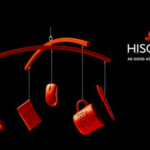Getting approved for a loan can be difficult, especially if you have bad credit or limited credit history. However, there are still options available if you need to get a loan but keep getting rejected. With some persistence and creativity, you may be able to get the financing you need.
Check your credit report and score
The first step is to check your credit report from all three bureaus – Equifax, Experian and TransUnion. Look for any errors that may be dragging down your score, such as incorrect late payments or accounts that don’t belong to you. Dispute these immediately in writing and get them removed from your report if possible.
Even if your score is poor, knowing the specifics will help you understand why lenders view you as high risk. You can get your free annual credit reports from annualcreditreport. Paying for your full credit reports is worth it now as well, so you can see your complete history.
Take steps to improve your credit
Improving your credit score takes time, but you may be able to make enough incremental improvements to qualify for loan approval:
- Pay down balances: Try to lower your credit utilization ratio by paying down balances as much as you can. The lower the better.
- Dispute errors: Keep disputing any errors you find to clean up your history.
- Become an authorized user: Ask a friend or family member with good credit to add you as an authorized user on their credit card. This can give your score a boost.
- Don’t apply for more credit right now: Each application is a hard inquiry that can drop your score a few points. Wait until your credit improves.
- Pay all bills on time: Set up automatic payments so you never miss payment and due dates. Payment history is a huge factor in your score.
Check your progress getting your credit score as high as possible before applying for a loan again.
Ask your bank or credit union
If you have an existing relationship with a local bank or credit union, talk to them about your situation. Let them know you are a loyal customer in need of a loan during a difficult time. Local lenders are often more flexible than big banks when approving loans for existing customers in good standing.
Having a previous banking relationship is the key. You stand a better chance at small loan approval from a lender who wants to keep you as a customer long-term. Tell them you will move more of your banking to their institution if they can approve you.
Apply for secured loan options
Secured loans require collateral that the lender can seize if you fail to repay. Because these loans are lower risk, they are easier to get with bad credit. Options include:
- Auto title loans: Use your paid-off car as collateral. Interest rates are higher but provide fast cash.
- Pawn shop loans: Get a fraction of the resale value in cash for jewelry, electronics or collectibles and pay back the loan plus fees within 60 days or the items are forfeited.
- Home equity line of credit (HELOC): This option taps available equity you have built up in your home. It takes 30-60 days to fund but rates are affordable.
Just be cautious borrowing against assets you don’t want to lose. Be sure you can afford the payments.
Find a cosigner
If your credit is limited or bad, a cosigner with good credit can get you approved by agreeing to repay the loan if you default. Make all payments on time, so you don’t ruin their credit as well. Cosigners are usually parents, relatives or very close friends willing to help you out.
Offer to put your cosigner’s name on the title of a car or other purchased asset for extra incentive. Be upfront about repaying the lender first before making payments to the cosigner. Draft a legal cosigner agreement to detail the arrangement.
Ask for a goodwill deletion
Contact previous creditors and lenders where you had issues such as collections, late payments or repossessions in the past. Ask politely for a goodwill deletion from your credit report. Explain that you are trying to rebuild your credit but these past issues are holding you back from getting approved for a critical loan.
Some creditors, especially larger banks, may be willing to remove negatives if you have paid the debt and remained in good standing since. Get any agreements for a goodwill deletion in writing. Send dispute letters to the credit bureaus referencing the deletions so they are removed.
Look into credit builder loans
Credit builder loans are designed specifically to help you establish or rebuild your credit. The lender gives you the loan amount upfront but places it into a secured savings account. You make monthly payments as with a regular loan.
After the agreed loan repayment period, you get access to the savings account balance. Credit builder loans are easier to qualify for, so they allow you to prove you can make timely payments and have those positives added to your credit file.
Apply for credit union payday alternative loans
If you need smaller amounts less than $1,000 quickly, consider payday alternative loans (PALs). These are available from federally-chartered credit unions as an alternative to high-cost payday loans.
Loan amounts of $200-$1,000 are repaid over one to six months. You must be a credit union member first and the application process is meant to determine if you can repay the loan sensibly. Interest rates are capped at 28%.
Seek out “bad credit OK” lenders
There are lending companies that specialize in higher-risk borrowers with past credit challenges. They may promote “guaranteed approval” or “bad credit OK.” Be cautious of very high interest rates or predatory lending practices, but reputable alternative lenders that help people bounce back do exist.
Online lenders like Upstart and LendingClub use more than your credit score to approve loans. Avoid payday lenders and auto title stores with crazy high interest rates. Carefully compare all terms and fees first before accepting a bad credit loan.
Apply with a creditworthy co-borrower
Similar to a cosigner, applying for a loan with another applicant who has higher income or solid credit can get you approved for a joint loan. A spouse, family member or trusted friend may agree to co-borrow if they also need or benefit from the loan.
You can argue to the lender that the co-borrower’s qualifications offset your weaker application. Make sure the co-borrower understands the debt is equal responsibility between both of you, however. Consider legal documentation to outline who will repay what portions in case of default.
Provide alternate proof of creditworthiness
If you have limited credit history, you can provide additional evidence that you are financially responsible and able to repay debt. Options include:
- Bank statements showing healthy savings
- Tax returns showing steady employment income over time
- Proof of real estate or land ownership
- Proof of retirement account balances
- Recent utility bills paid on time
- Professional licenses or credentials
The lender wants to feel secure they are making a good investment by approving your loan. Giving as much supplemental documentation as possible can help overcome bad credit.
Apply for a credit-building card
A secured credit card is one of the easiest credit-building tools for bad credit. Because it requires an upfront security deposit that acts as your credit limit, banks view secured cards as lower risk.
Use the card for regular purchases, paying the balance off each month. After about a year of consistent payments, you can qualify for an unsecured card and get your deposit back. Some secured cards become unsecured cards over time as well.
Consider peer-to-peer lending
Peer-to-peer lending sites like Prosper and LendingClub match individual investors looking for returns with credit-challenged borrowers. Investors each fund small pieces of loans requested by borrowers. The P2P lending platforms assess risk using expanded criteria beyond traditional credit scores.
Interest rates won’t be as low as a regular bank loan but will likely beat high-cost payday lenders. The application process is quick and lending decisions fast, often within 5 days. These loans function like personal loans up to $40,000 paid back over 3-5 years.
Summary
- Check your credit reports and focus on improving your score before applying for a new loan.
- Leverage relationships with local banks and credit unions that may be more flexible.
- Explore secured loan options using collateral.
- Find a cosigner or co-borrower with better credit to strengthen the application.
- Ask lenders and creditors for goodwill deletions and credit-building programs.
- Seek out alternative lenders willing to work with bad credit borrowers.
- Provide supplemental documentation beyond your credit reports.
- Open a secured credit card and use responsibly to build positive payment history.
- Consider peer-to-peer lending sites that use expanded approval criteria.
With determination and a strategic approach, you can find lending options even with poor credit history. The key is rebuilding your reputation as a responsible borrower step-by-step.
Frequently Asked Questions
How can I get a small personal loan with bad credit?
Your best options for small personal loans under $5,000 with bad credit are credit union payday alternative loans, peer to peer lending sites, and “bad credit OK” online lenders and marketplaces like Upstart and LendingClub.
What is the easiest loan to get approved for?
Secured loans like auto title loans and pawn shop loans are often the easiest to get approved for since they are collateralized. Payday loans are also easy to qualify for but have very high interest rates. Credit builder loans through credit unions are designed for easy approval as well.
Can I get a business loan with bad personal credit?
Yes, you can get startup business loans and small business loans based on your company’s assets and revenue rather than personal credit scores. SBA loans, equipment financing loans, merchant cash advances, and factoring companies offer credit for businesses without requiring good personal credit.
What can I use as collateral if I have bad credit?
Common assets to use as collateral when you have bad credit are your car title, jewelry or valuables, real estate equity, retirement accounts, or business assets and equipment. Even with poor credit, secured loans allow you to leverage the value of assets you own to secure financing.
Is a cosigner legally responsible if I default on a loan?
Yes, a cosigner shares equal legal responsibility for repaying a loan. Defaulting on the loan damages the cosigner’s credit alongside yours. Some cosigners can be released after 1-2 years of consecutive on-time payments through a cosigner release program with the lender.
Conclusion
The bottom line is that you can qualify for loans even with poor credit and repeated rejections – it just requires persistence and creativity. Take control of your situation by starting to correct negatives on your credit reports, providing alternate evidence of creditworthiness, and exploring more flexible lenders and loan types. With a strategic approach, you can rebuild your credit and access the financing you need. The most important thing is to not give up hope!










